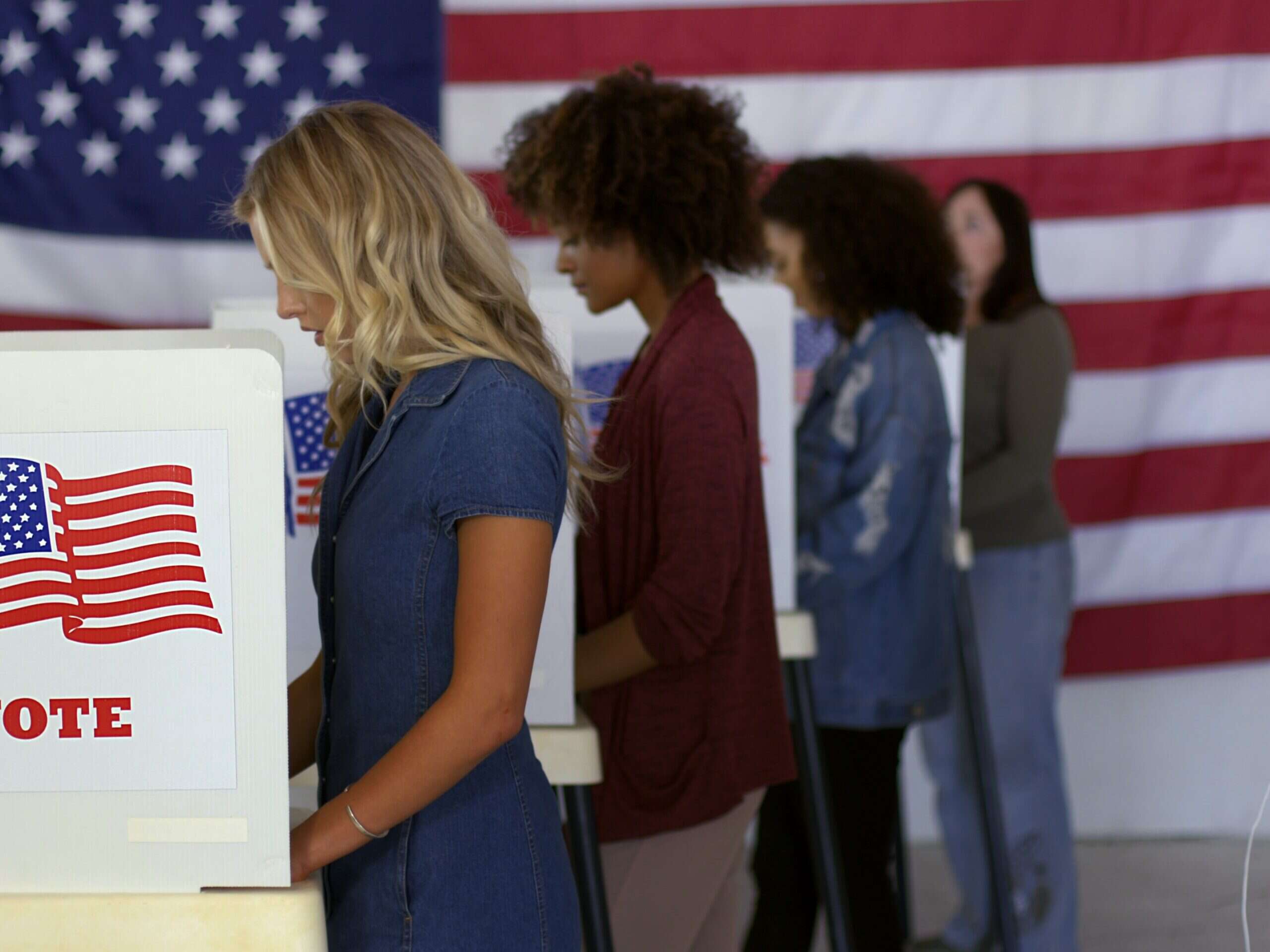
As election day approaches in the US, journalists around the world are working in the most challenging environment of their lifetimes.
How journalists cover the run-up and, especially, the aftermath of the election will be crucial for American democracy – and the ideal of democracy around the world.
British media are popular and influential in the US and they can play an important role in shaping how the American public will interpret the election and its aftermath. The BBC could well play a big role. Research has shown that 58% of Americans say they trust the broadcaster and 12% get at least some of their news from it each week.
UK newspapers also have the potential to be influential players: in March 2020 the Guardian US recorded more than 114 million unique visits while the Daily Mail online attracts an estimated 73 million monthly unique visits in the US. Meanwhile, most readers of The Economist are in North America. And the influence won’t stop there – given their international prestige and recognition, British media are likely to shape news coverage of the US election all around the world.
Democracy at stake
We are already seeing issues with UK reporting of the US election. The press is extensively covering statements that are largely unfounded but challenge the legitimacy of the election, such as Trump’s denunciation of mail-in ballots. To be fair, this reporting often (though not always) includes disclaimers and fact-checks, but research shows that false statements that are repeated often can be seen as truthful by audiences.
Journalists tend to consider conflict as newsworthy, and therefore are keen to cover even the wildest allegations that a party throws against the other – and the electoral process itself. Yet, this means airing baseless accusations that weaken democratic legitimacy. News that depicts democracy as a no-holds-barred competition for power increases cynicism and reduces political knowledge among citizens. To protect the integrity of the electoral process, journalists should instead adopt a ”democracy-worthy“ frame.
Making democracy central to news coverage also requires understanding and preparing for the likely legal battles that lie ahead. The mechanisms of a US presidential election are by and large defined at the state rather than the federal level (remember the “hanging chads” battle in Florida in 2000?) Journalists need to develop knowledge about and credible sources on state electoral regulation – particularly for states where the vote is likely to be close. If coverage of these legal battles turns into a litany of complaints from partisan lawyers, democracy will lose out.
What can be done?
In response to these challenges, the Election Coverage and Democracy Network brings together over 60 experts from around the world to help newsrooms cover this election with evidence-based best practices that uphold journalistic and democratic values and address the needs of the audience.
We have developed some recommendations, a curated list of resources and a roster of experts journalists can tap into.
The recommendations focus on three areas.
1. During the campaign, we recommend that journalists deny a platform to anyone making unfounded claims while putting voters and election administrators at the centre. They should strive for equity in news coverage and make quality coverage more widely accessible, by temporarily bringing down paywalls for it.
2. In case of a contested election, we recommend that journalists publicise their plans for how they will cover results and avoid making premature declarations on who won. They should develop and use state and local-level expertise to provide locally relevant information on electoral rules and distinguish between legitimate, evidence-based challenges to vote counts and illegitimate ones that are intended to delay or call into question accepted procedures.
They must avoid using social media as substitutes for institutionally credible and reliable election information, while recognising that technology platforms have an important role to play. Importantly, they should embrace existing democratic institutions, by explaining how elections work and emphasising that the increased availability of mail-in ballots is an effective response to the COVID crisis.
3. In the eventuality of civil unrest, we recommend that journalists help their audiences understand the roots of unrest by explaining the sources of social and political divisions in the country. They must also uphold democratic norms that prescribe that the candidate who gains most Electoral College votes is elected president, that the loser should promptly concede, and that all citizens have the right to speak, write and assemble peacefully.
Journalists must use clear definitions for actions and actors (for instance, distinguishing between paramilitary groups and citizen protesters) and deny a platform to those who call for violence, spread disinformation, or foment racist ideas.
There are many excellent examples of “democracy-worthy” news coverage of the US election, as we highlight via our Twitter account. If UK journalists take notice – and their readers reward these best practices, more are likely to follow.
American democracy, and the ideal of democracy itself, are at stake in 2020. Journalists and readers must rise to the task – it’s that important.![]()
Cristian Vaccari, Professor of Political Communication and Co-Director of the Centre for Research in Communication and Culture., Loughborough University
This article is republished from The Conversation under a Creative Commons license. Read the original article.
Email pged@pressgazette.co.uk to point out mistakes, provide story tips or send in a letter for publication on our "Letters Page" blog
